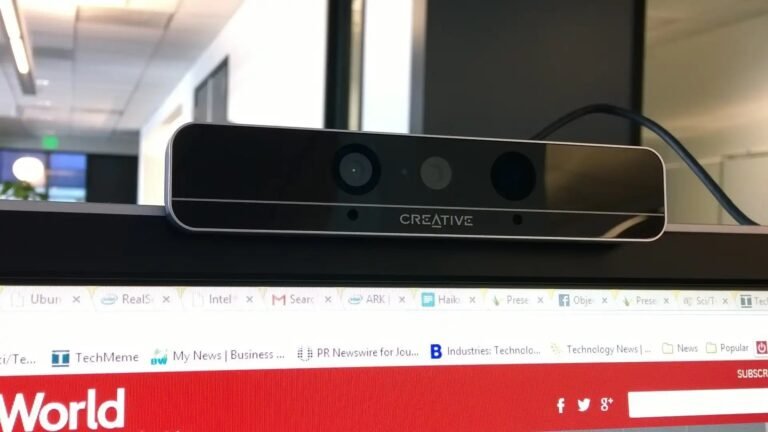Intel spins off RealSense as a new depth-camera company
Image: Mark Hachman / IDG
RealSense, a depth-camera technology that basically disappeared within Intel, has returned as a separate company.
The company has spun out from Intel and raised $50 million in funding. The company will be led by Nadav Orbach, Intel’s former vice president and general Manager for the Incubation and Disruptive Innovation group.
RealSense plans to address “increased demand for humanoid and autonomous mobile robotics (AMRs), as well as AI-powered access control and security solutions,” the company said.
RealSense flourished, so to speak, about a decade ago, when its depth-camera technology was competing with the Microsoft Kinect system. Though Intel was able to license the RealSense technology to device makers like Creative, the tech seemed to flounder in the PC space–even as Windows Hello and its depth-camera tech became a staple on Windows 10 PCs.
Intel instead adapted its technology for the robotics market.
“RealSense will continue to support its existing customer base and product roadmap, including the acclaimed RealSense depth cameras, embedded in 60 percent of the world’s AMRs and humanoid robots, an incredibly fast-growing segment,” RealSense said in a statement. “Its recently launched D555 depth camera, powered by the next-gen RealSense Vision SoC V5 and featuring Power over Ethernet (PoE), demonstrates the company’s ongoing leadership in embedded vision technology and edge AI capabilities.”
Intel, meanwhile, has been feverishly working to cut costs, revamping its foundry strategy, and laying off employees in a bid to get its finances back on track.
Author: Mark Hachman, Senior Editor, PCWorld
Mark has written for PCWorld for the last decade, with 30 years of experience covering technology. He has authored over 3,500 articles for PCWorld alone, covering PC microprocessors, peripherals, and Microsoft Windows, among other topics. Mark has written for publications including PC Magazine, Byte, eWEEK, Popular Science and Electronic Buyers’ News, where he shared a Jesse H. Neal Award for breaking news. He recently handed over a collection of several dozen Thunderbolt docks and USB-C hubs because his office simply has no more room.

